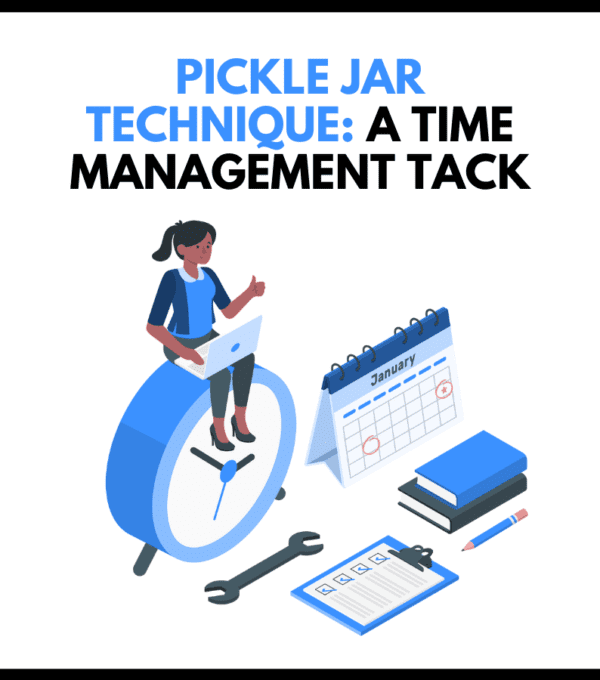It’s 10pm at night. I have had my dinner. Had a very very tiring day in office, feeling sleepy. Need to take up the lectures of my course. No, not feeling like to study, too dull. But, let me check out the social media handles for 10 minutes before going off to bed. It’s 12 am at night. Oh gosh!, its late. I am no moresleepy, can’t sleep now. What I should do now? I start thinking about my day. Did I do something really worth today? Or it was busy mostly because of doing all sorts of unimportant tasks. I realize that nothing important was done. I feel utterly frustrated. Feeling lost of how to cope with pressures of so many tasks. As a defense, I again tune to a web series…..Tick, Tick, my morning alarm ..I get up with a grumpy, half slept tired body and mind. And your vicious circle of TIME MISMANAGEMENT, PROCRASTINATION and FRUSTRATION continues. Honestly speaking, more than half population across the globe is entrapped in this vicious circle. This not only affects the global productivity but also indicates the high level of mental health issues among people. We all are bind in the daily rut of our professional and personal lives. Unless, we schedule and plan our tasks properly, we are apt to fall preys to negative emotions like frustration, anger, depression and so on. People often complain about lack of time when lack of direction in them is mostly the culprit.
THE TECHNIQUE: A BRIEFING
We kill time. We save time. We lose time, we waste time and we have all the time in the world. But no one of us is powerful enough to stop the march of time or slow it down. Is it something far beyond our control? In fact, no. While we cannot influence the flow of time, we still can get the most out of it. Becoming a wise time manager may be tricky, but the results are worth the effort. Being the master of your time means getting more done, staying energized, and doing more things you enjoy. If we want to be productive, we have to be master of our minutes. In this blog, we focus on a very efficient and practical time management technique named THE PICKLE JAR technique. The name might sound a little mismatched to the context.
The Pickle Jar Theory acts as a visual metaphor to determine what is useful and needs immediate attention and what is not useful that can be pushed aside for later. It helps you to plan your priorities in daily life and set routines in such a way, that you have time to spare instead of too few hours in the day.As the name suggest, in the concept of Pickle Jar theory, we need to assume that every day in our life is like a jar of pickles. It has limited space that denotes the finite time we have in a day. We can fill the jar with several items like rocks, pebbles, sand and water. Each one indicates a category of task that we are entrusted or we do.
INGREDIENTS IN THE JAR VIS-A- VIS YOUR TASKS IN A DAY
- First comes the rocks. They represent the highest priority tasks with timelines and are of high values in one’s life. They stand for your roles, objectives and commitments.Rocks are the larger-scale tasks, which could have serious consequences if not completed properly and on time.
- Next in line come the pebbles. Once the jar is filled with rocks, the empty spaces can be filled with small pebbles. These pebbles represent roles and tasks second in priority but are urgent and important. Pebbles represent the smaller jobs that you have to deal with every day, which need to be completed, but can be pushed to another day or delegated as needed.
- After the jar is filled with rocks and pebbles, the crannies left can be filled with sand. They represent some regular routines of our life but not so important ones. They may be skipped. Sand denotes the small disrupting elements one has to encounter during their workdays. These include things like non-essential emails, phone calls, and social media notifications.
- Now the jar is almost full with rocks, pebbles and sand. Yet there may be some chinks to accommodate water. If you pour water, it will trickle down and settle inside the jar. Water represents all those unimportant trivia that lead to waste of time. These include those unimportant tasks that we may engage ourselves occasionally but can be sheer futile if we start adding them to our daily schedule. It may include things like aimless web browsing, gossiping, getting hooked to social media and so on.
HOW CAN YOU APPLY IT?
One may have to complete a variety of work over the course of a day. However, the productive capacity of one’s day is limited just like the capacity of a pickle jar. This is part where most people fail to tactfully manage their tasks and struggle with their time management strategies. But if one tries earnestly to get disciplined and set priorities, the stress related to time crunch will vanish. It is natural to respond to something that instantly grabs our attention. For example, if we get a notification of a social media feed, it is natural to stop and take a look. If your colleague walks by your desk, you may want to talk for a few minutes. What people don’t realize is that all these little adjustments end up having a larger time cost at the end of the day. Many people are unable to control their impulse to regulate their time for the pleasurable, relaxing activity judiciously so that other important routines are not hampered.
This time management tack guides you to prioritize. Your day should start with a concrete plan to get those essential “rock” tasks done, no matter what. After that, you should figure out a way to work the smaller “pebble” tasks in, and on days when that are not possible, you need a plan to delegate or reschedule then. Finally, you let those emails, chats and calls seep their way into your defined schedule. Somedays, you may indulge in the flow of those watery tasks that are basically unproductive but at times are relaxing and mood uplifting.
Knowing that your time is limited and what can fit inside the pickle jar. It is your choices which items do you place in it first? If you put in all the sand, add the pebbles, and then try to squeeze in the rocks last, you won’t have enough space for the rocks. But if you add the biggest items first, the rocks, then add the pebbles, and then pour the sand in, you will find that you are the master of your time.





28 thoughts on “Improve Your Time Management Skills with the Pickle Jar Technique”
[…] Time management is critical in accounting, so be prepared to talk about how you prioritize your tasks to ensure that everything gets done on time. Describe any specific tools or processes you use to manage your workload, and emphasize your ability to multitask and stay organized. […]
… [Trackback]
[…] There you can find 20141 additional Info to that Topic: skillfine.com/pickle-jar-technique-time-management/ […]
… [Trackback]
[…] Find More Information here to that Topic: skillfine.com/pickle-jar-technique-time-management/ […]
… [Trackback]
[…] There you will find 79316 additional Info to that Topic: skillfine.com/pickle-jar-technique-time-management/ […]
… [Trackback]
[…] Here you will find 6059 more Information on that Topic: skillfine.com/pickle-jar-technique-time-management/ […]
… [Trackback]
[…] Here you will find 16850 additional Information to that Topic: skillfine.com/pickle-jar-technique-time-management/ […]
… [Trackback]
[…] Read More here on that Topic: skillfine.com/pickle-jar-technique-time-management/ […]
… [Trackback]
[…] Find More Info here on that Topic: skillfine.com/pickle-jar-technique-time-management/ […]
… [Trackback]
[…] Read More on that Topic: skillfine.com/pickle-jar-technique-time-management/ […]
… [Trackback]
[…] Info on that Topic: skillfine.com/pickle-jar-technique-time-management/ […]
… [Trackback]
[…] Find More to that Topic: skillfine.com/pickle-jar-technique-time-management/ […]
… [Trackback]
[…] There you can find 88724 more Information on that Topic: skillfine.com/pickle-jar-technique-time-management/ […]
… [Trackback]
[…] Find More Information here on that Topic: skillfine.com/pickle-jar-technique-time-management/ […]
… [Trackback]
[…] Here you will find 53138 additional Information on that Topic: skillfine.com/pickle-jar-technique-time-management/ […]
… [Trackback]
[…] Read More here to that Topic: skillfine.com/pickle-jar-technique-time-management/ […]
… [Trackback]
[…] Read More on on that Topic: skillfine.com/pickle-jar-technique-time-management/ […]
… [Trackback]
[…] Read More Info here on that Topic: skillfine.com/pickle-jar-technique-time-management/ […]
Wow, amazing blog format! How lengthy have you ever been running
a blog for? you make running a blog look easy. The total glance of your web site
is great, let alone the content! You can see similar:
ecommerce and here ecommerce
Your article helped me a lot, is there any more related content? Thanks!
Thanks for sharing. I read many of your blog posts, cool, your blog is very good.
Right away I am going away to do my breakfast, after having my breakfast coming over again to read
more news.
Thanks for sharing. I read many of your blog posts, cool, your blog is very good.
Your article helped me a lot, is there any more related content? Thanks!
Thank you for your sharing. I am worried that I lack creative ideas. It is your article that makes me full of hope. Thank you. But, I have a question, can you help me?
451614 877371Id need to consult you here. Which is not some thing Its my job to do! I spend time reading an write-up that may possibly get individuals to believe. Also, a lot of thanks for permitting me to comment! 168030
754482 954585Hey! Wonderful post! Please do tell us when we can see a follow up! 531221
Thanks for sharing. I read many of your blog posts, cool, your blog is very good.
877587 247763I discovered your weblog website on google and check a couple of of your early posts. Proceed to preserve up the extremely great operate. I just extra up your RSS feed to my MSN News Reader. Looking for ahead to reading extra from you later on! 217037